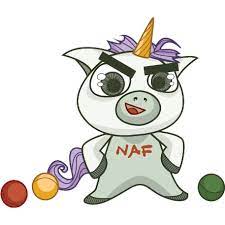Hi everyone, this will be the last blog post until August 8th, as I’ll be on my annual July break. By the time you’re reading this, I am on my way to Vietnam to see the relatives. It will be three weeks of getting criticized for my career choice, divorced single status, and disheveled general appearance. It’s OK; relentless criticism is one of the love languages in Vietnamese culture.
I hope that you’re also taking time for yourself. Our sector sucks at this. Even during a pandemic, I see so many colleagues lamenting/bragging about how little vacation they’ve been taking, how they haven’t taken a break in literally years. Cut it out. There is no honor in burnout. You deserve to rest and to recharge and watch all 10 episodes of The Bear season 2 in one sitting, or whatever brings you joy.
However, it’s easy to say that. We’ve internalized some philosophies and messages that make rest feel shameful. One of these is the concept of “laziness.” Our self-worth and even identity are tied to doing stuff constantly, and when we think we’re not, we feel awful and useless. It’s a risotto of capitalism that we’re expected to stir perpetually while adding more and more heated broth of productivity.
Let’s change our conceptualization of laziness. You’re not “lazy” when you’re taking time off, whether it’s an afternoon or several days or a sabbatical of several months. You’re not “lazy” when you say no to extraneous stuff you may not have the time or energy for. You’re not “lazy” when you don’t constantly engage with people in real life or online. You’re not “lazy” when you don’t take a shower for several days, or spend three hours napping in the supply closet/conference room after looking over the cashflow projections. You’re probably just emotionally and physically exhausted but your stress tolerance has reached such a level that you don’t notice.
Here’s a scenario of what true laziness looks like: My friend applied for a job and went through several rounds of interviews. She was asked to do free labor such as providing feedback and suggestions (free consulting) regarding the organization’s current practices. After the hiring timeline they proposed had passed, she waited patiently and then sent in a polite request asking to know when they would make their decision. She waited several days and sent another email. They ghosted her for weeks and eventually told her she didn’t get the job.
Not following up with job candidates is lazy. At least my friend finally got the rejection notice from this organization. I’ve heard so many colleagues being ghosted after going through several rounds of interviews, never getting a call or email from the org again. Except a few who got messages later asking for a donation. This is not just lazy, it’s also thoughtless, cruel, and gross. And inequitable, as job candidates from marginalized communities will be most affected.
The definition of “laziness” needs to shift from “being averse to work and productivity” toward “being averse to doing things that would lead to a just and equitable world.” Along those lines, here are other forms of true laziness. This list is by no means comprehensive:
Funders:
- Requiring full grant applications that’s tailored to your foundation because you’re too lazy to gather the same information by reading a grant proposal that’s already written by the organization for another foundation.
- Having ridiculous character limits on grant applications because you’re too lazy to take an additional 30 seconds each to read slightly longer answers.
- Requiring grant applicants to fill out your own budget template because you’re too lazy to try to understand applicants’ budgets in their original formats.
- Having nonprofits attach or print out documents like 990 tax forms because you’re too lazy to look these publicly available documents on the internet.
- Using “overhead” rate as a criterion to evaluate nonprofits because you’re too lazy to learn more effective ways to assess outcomes and effectiveness.
- Prohibiting nonprofits from engaging in advocacy because you’re too lazy to bother looking up the legal parameters around lobbying, advocacy, etc.
Board members:
- Putting a stop to equity practices that the staff propose because you’re too lazy to learn about the issues affecting our communities. For example, the board members who stopped their staff who just wanted to put their pronouns in their email signatures. And the ones who prevented their team from releasing a statement supporting abortion rights. Get your lazy ass to several trainings or at least read an article.
- Letting the ED/CEO get away with horrible stuff because you’re too lazy to check to ensure they are not abusing their power or doing other terrible things.
- Not making important decisions, such as firing a racist CEO, and instead keeping the staff on edge and demoralized because you’re too lazy to spend the time to do what is needed.
EDs/CEOs:
- Hiring your friends or family members because you’re too lazy to run an effective hiring process and too lazy to reflect on nepotism and other unethical practices.
- Forcing your team members to follow inane and nonsensical rules because you’re too lazy to try to improve your skills as a leader so you stick to archaic, ineffective, and inequitable BS.
- Firing staff who bring up problematic issues of race, white supremacy, etc. because you’re too lazy to do the difficult work of addressing these issues.
- Sticking around when you are clearly not good for the organization or even destructive to it because you’re too lazy to find another line of work and maybe go to therapy.
…









